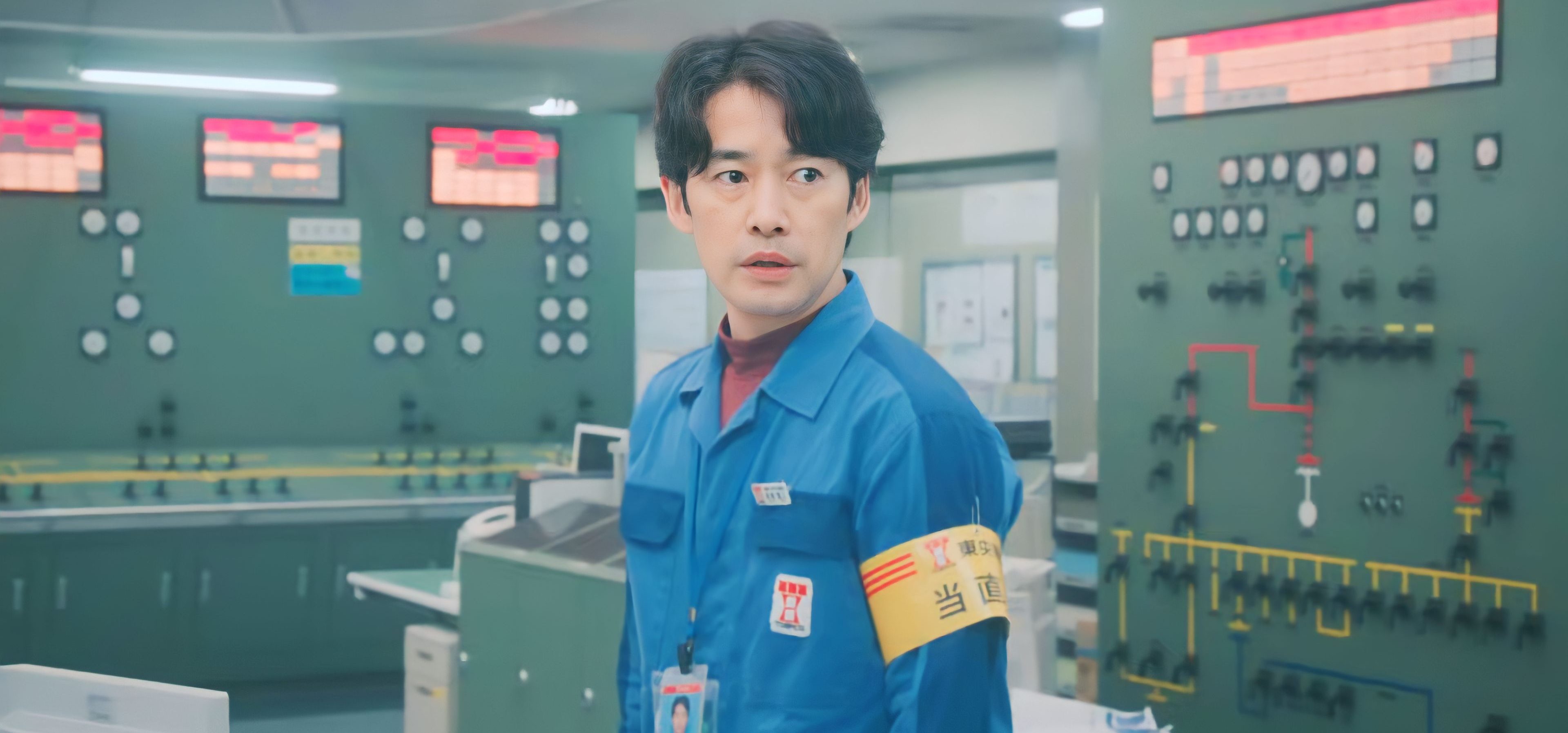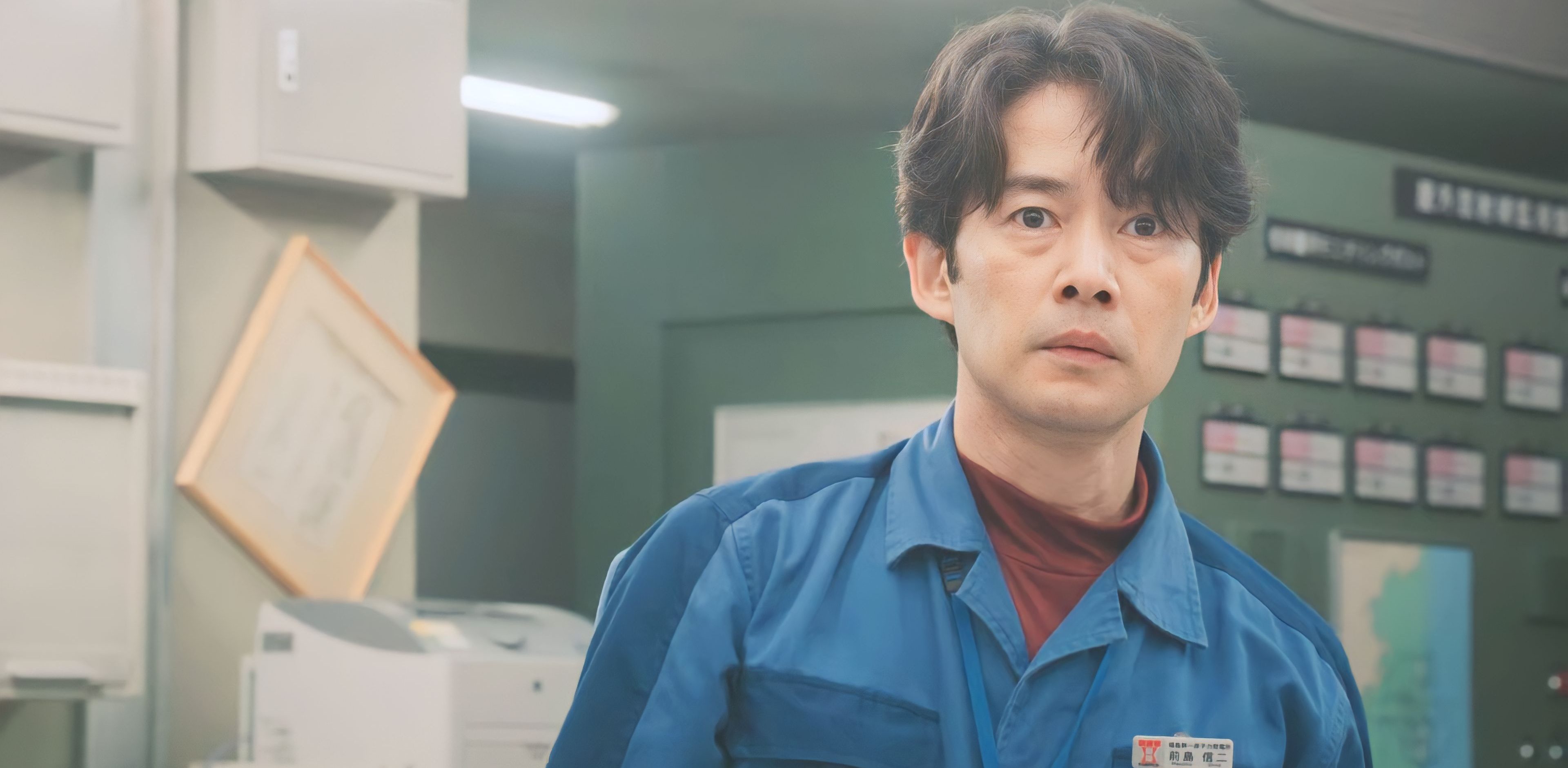Netflix’s Japanese series ‘The Days’ is an in-depth depiction of the Fukushima nuclear disaster, exploring the causes and aftermath of the same through the lives of the TEPCO employees, their superiors, and government authorities who monitor them during the disaster. The control room supervisor Maejima teams up with station manager Masao Yoshida throughout the disaster to make sure that they are trying their best to mitigate the consequences of the startling nuclear disaster. Maejima’s resilience and determination play a key role in limiting radiation emissions in the wake of the disaster. But is the commendable character based on a real person or a fictional creation? Let’s find out!
Maejima is Based on a Real Control Room Operator
Maejima is based on a real control room operator. In the series, Maejima leads the operators of the control room of the Fukushima Daiichi Nuclear Power Plant’s Unit 1 and Unit 2 reactors. In reality, the person in charge of the same during the nuclear disaster was Ikuo Izawa. He was born in 1958 in the town of Futaba as the first son of a farmer. At the time of the earthquake before the disaster, Izawa was leading the control room as a substitute for the scheduled shift supervisor who was engaged with a hospital appointment. When Yoshida and Izawa realized that the pressure was building in the Unit 1 reactor, displaying the danger of a potential explosion, they decided to rely on venting to release the same.

To move forward with venting, Yoshida and Izawa wanted to open multiple valves. The latter volunteered to open the same but his colleagues were adamant about having him in the control room, leading others. Izawa convinced his colleagues and subordinates, who questioned the need of staying in the control room without any essential resources, to stay put and fight the challenges. “Abandoning the control room means… we abandon the plant… and the whole region around it. The people who have already evacuated are watching us and praying that we can do something. So, we can’t… there’s no way we can just throw in the towel here,” he told his colleagues, as per Ryūshō Kadota’s source text of the series ‘On the Brink: The Inside Story of Fukushima Daiichi.’
Izawa was determined to remain in the control room until the predicaments are solved, even if it meant staying there alone. While putting his life on the line, the supervisor made sure that he protected the young employees who worked for him. While preparing for injecting seawater to cool down reactors, Izawa asked the young employees to evacuate since they were expected to build a future for his country. “While they [young employees] were in the control room, I was responsible for them, so it was a great relief to be able to send them somewhere safer. It had been a weight on my mind all along,” Izawa told Kadota for his book.
While Yoshida made highly significant and consequential decisions, Izawa played a vital part in materializing the same. At one point, as per Kadota’s book, he even accepted his possible death and believed that he wouldn’t see his family again. Still, he didn’t deviate from his commitments and led the control room until complete evacuation.
Maejima is Working as a Nuclear Trainer
Ikuo Izawa was employed by Tokyo Electric Power Co., Inc. AKA TEPCO until August 2016. He retired from the company at the age of 63. Since then, he has been working as an instructor who trains nuclear power plant operators. Upon surviving the nuclear disaster alive, contrary to what he had believed while leading the control room, he has been vocal about preparing for the unexpected. “The impact of the tsunami was totally bigger than what we expected, trained, prepared for, or believed was possible—it was unimaginable. We must always be prepared for the possibility that something much bigger can happen,” Izawa told a group that visited Japan on behalf of the U.S. Nuclear Regulatory Commission.

Izawa hasn’t been appearing regularly in the limelight after the nuclear disaster. In 2020, he recollected his experiences as a supervisor of one of Fukushima Daiichi’s control rooms ahead of the tenth anniversary of the nuclear disaster. He revealed that he and his colleagues had to deal with the unforeseen disaster without any adequate training to confront such a predicament in pitch black. Looking back at the disaster, he described himself and his team as “human beings with their own thoughts” rather than “special beings.”
Read More: Where is Netflix’s The Days Filmed?


You must be logged in to post a comment.